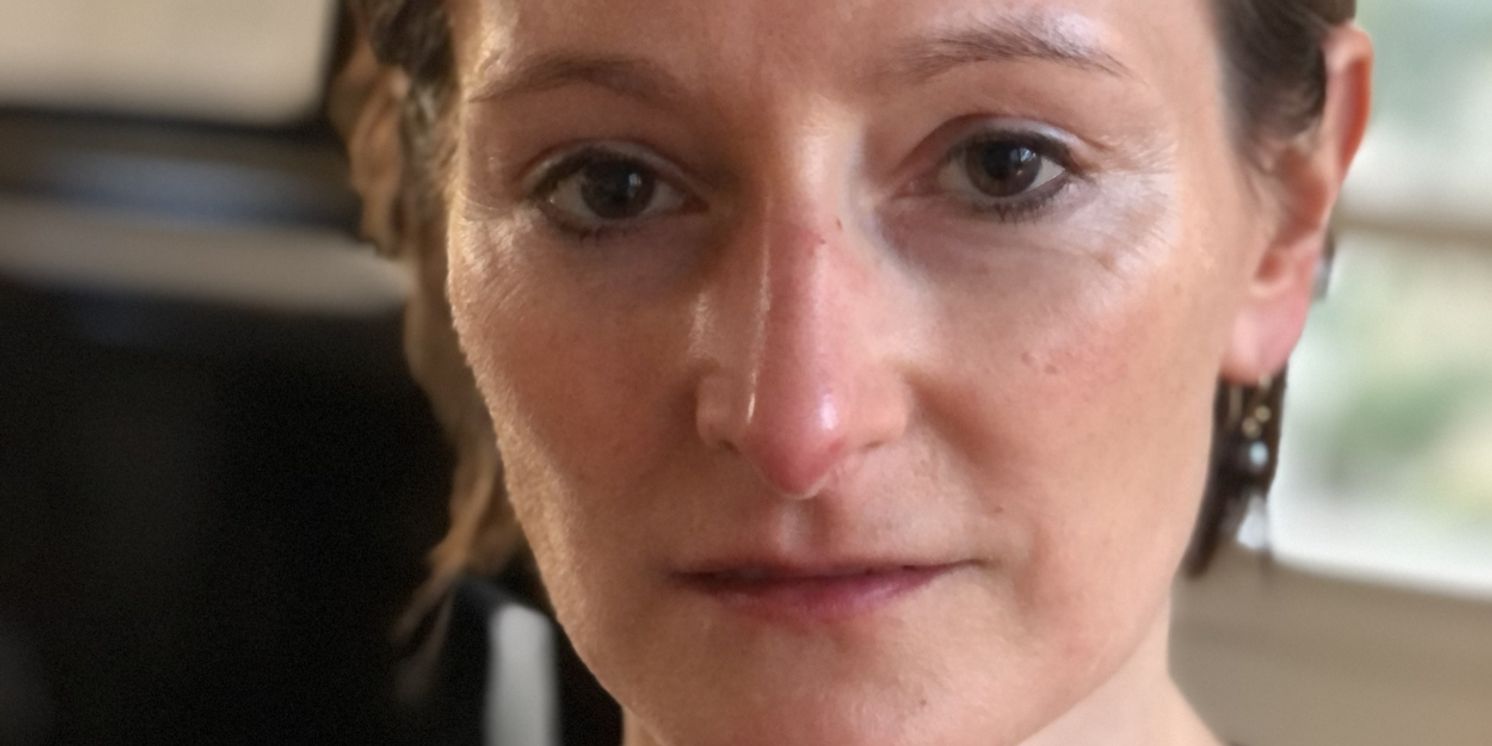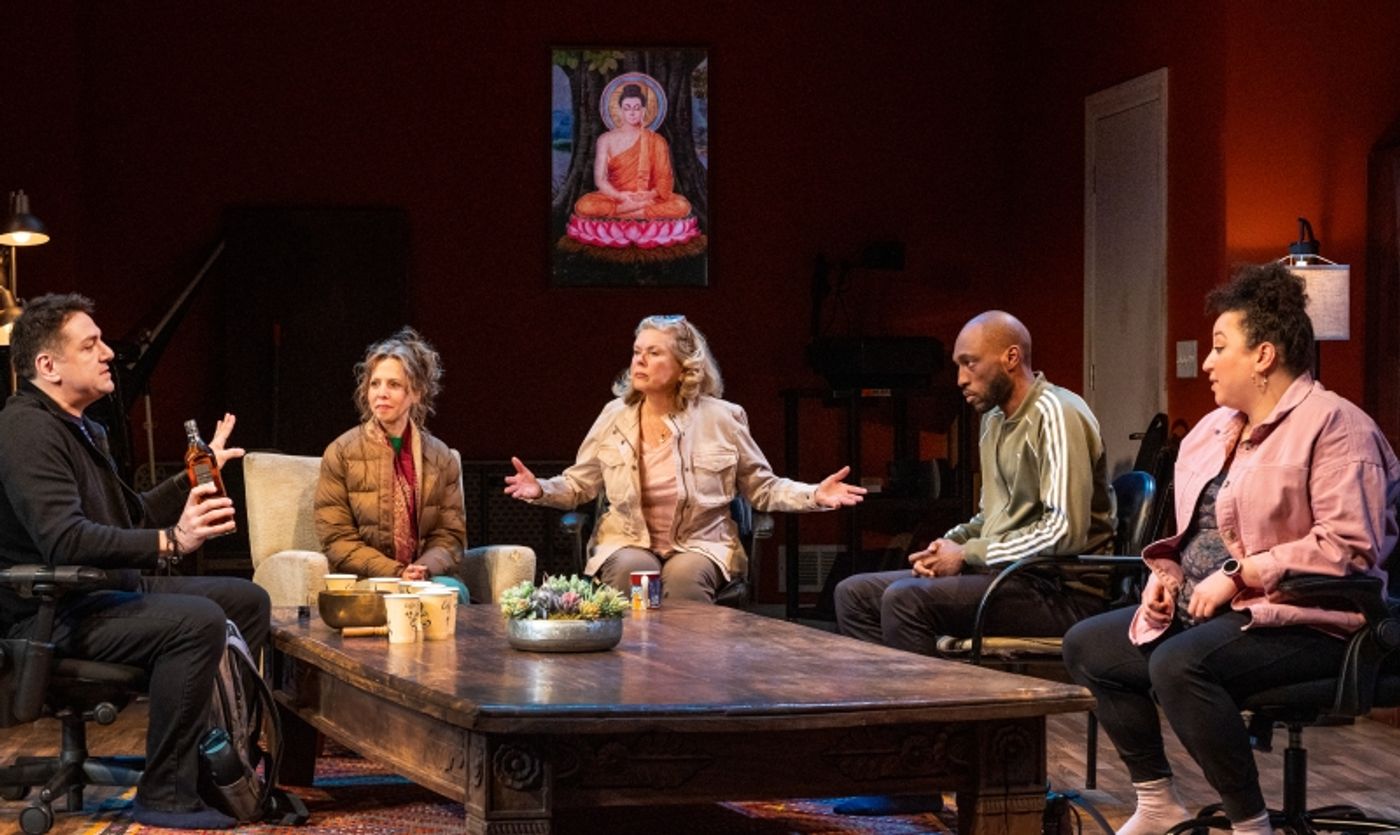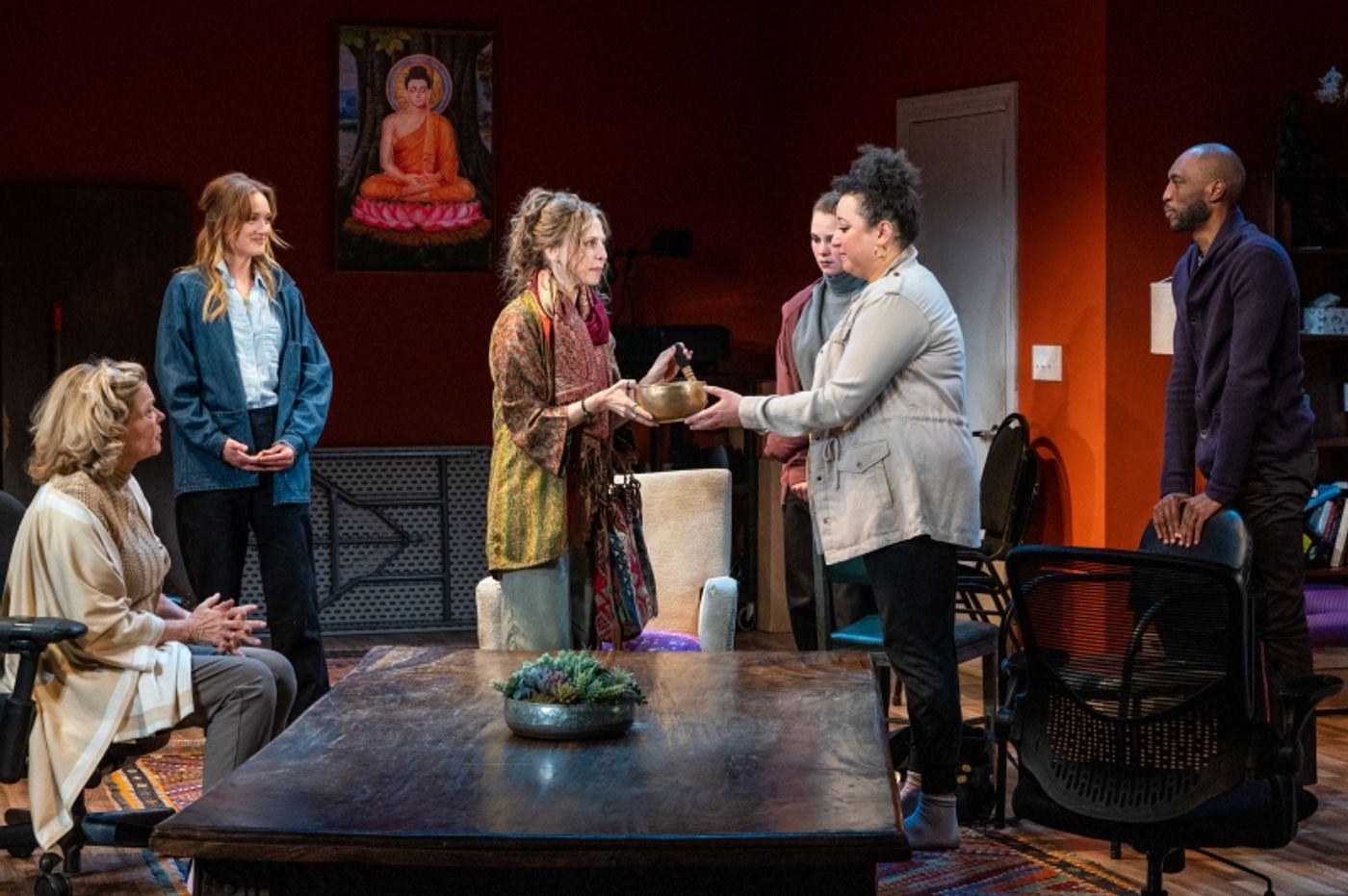Interview: Playwright Emma Sheanshang on Putting Her Personal Experiences Into THE FEARS
Catch The Fears Off-Broadway through June 18th.

Steven Soderbergh's New York City theatrical producing debut- the World Premiere of The Fears, a new play by Emma Sheanshang, directed by Dan Algrant, is currently running Off-Broadway at The Irene Diamond Stage at The Pershing Square Signature Center through June 18th.
In The Fears, a diverse group of people come together every week at a Buddhist center in New York City, to share in the teachings that provide solace from their personal traumas. But when a new members shows up without knowing the rules, everything begins to unravel.
The cast includes Maddie Corman (Accidentally Brave, Some Kind of Wonderful, A Beautiful Day in the Neighborhood), Kerry Bishé (Argo, AMC's "Halt and Catch Fire," Showtime's "Penny Dreadful") Natalie Woolams-Torres (Tiny Beautiful Things, NBC's "Chicago Med" and "New Amsterdam"), and Jess Gabor ("The Machine," "Shameless"), Mehran Khaghani (HBO's "High Maintenance"), Carl Hendrick Louis (1984, NBC's "Manifest," Netflix's "Mindhunter"), and Robyn Peterson (Public Theater's Talk Radio, Pretty Woman, HBO's "The Sopranos"), Joe Joseph (The Kite Runner, The Band's Visit), Dee Pelletier (The Minutes, August: Osage County), Suni Reyes ("Billions"), Britian Seibert (FX's "The Retreat").
BroadwayWorld spoke with The Fears playwright Emma Sheanshang about writing her personal experiences into her work, watching the cast bond as an ensemble, what audiences can expect to see from the play, and more.
What inspired the idea for The Fears, and when did you begin writing it?
The character of Thea is based on my story, not the manner in which she enters the group, but my mother was killed in the bombing of Pan Am Flight 103 when I was six. Ever since that happened, I was always seeking an answer to why that happened. Later life I began to be very interested in history, and feeling as though the US government was as much to blame as the Libyan. I was going back in time and trying to figure out how we became an aggressive country that was bullying other countries.
I was in the midst of this enormous round of historical research, stretching back some 4.6 billion years to understanding what happened to my mother, when I entered this group, this Buddhist trauma group at the Shambhala Center. This was about seven years ago. And the people there had a very different way of looking at what happened to them and were not concerned so much with allocating blame, but actually just having compassion for the people who hurt them. The dialogue of East vs. West in terms of how we deal with our pain really interested me. And so, I kind of thematized that in the play.

Can you tell me about what the writing process looks like for you? Where do you begin?
Dan Algrant, who is my life partner as well as the director of this play... at one point I had this timeline, I tried to see that as a play, I had hunter-gatherers, and I had Alexander the Great, and Thomas Jefferson, and I had a contemporary Buddhist trauma group. And I had about 90 pages of this, and he read that, and he said, “Why don’t you just make it all in the trauma group? And make a character who is like that, who has that timeline.” So, it was kind of useful that I already had this character.
Then I wrote a draft of the play that didn’t have any of the abuse. One of the major plotlines in it is that about two-thirds of the way through the play, the leader of the group reveals that she was abused by the co-leader she’d begun the group with. The person that they all worship was actually this terrible sexual predator. So, I’d written a draft of the play without any of that, when that actually happened at Shambhala Center, the person whose picture was all over the center, from whom we derived all wisdom. And everyone said, “Oh I studied with him,” and there were all these ‘oohs’ and ‘ahs’, this man was a terrible person. And the whole center shut down. So, I had to incorporate that into the play as well.
You’ve written your own personal experience into the play, can you tell me what that’s been like for you? To be vulnerable enough to incorporate your own life into your work, but then also having the opportunity to watch it play out on stage, and have other people take in your experience?
It’s hard to describe. Towards the end of the play, Thea has this panic attack and she finally opens up about the pain that she’s having, but it’s almost a PTSD moment. And those things are experiences that I’ve had, particularly when I read this New Yorker article about the bombing of the plane, It was one of those things where I didn’t want to look at it, and I did, and I freaked out. It upset me deeply because I was looking at images and things I had never dealt with, and don’t wish to deal with, actually. Even though all of that is exactly how I experienced it, having an actor like Kerry Kerry Bishé embody that, it becomes way more than the sum of its parts. It’s something completely different.
I think that we all can have these deep emotions in experience, but the idea of actually rendering them is so rare. It wasn’t rendered on the page in the way that she renders it. She has a true transference with the group leader where she feels like the group leader reminds her of her mother. But Kerry does that in a way, it’s almost like she showed me what I was really feeling. It wasn’t just on the page.
The Fears has an amazing team, from the producers to the actors, what has it been like bringing your play to life with them?
It’s been amazing. In a way, every rehearsal was like a trauma group, so it was interesting. It’s a 7-character ensemble piece, but now it’s not just the ensemble of characters, it’s the ensemble of these actors. They are these people, and they love each other so much, and it’s been an amazing thing to watch them become a true group.
I think one of the great things about this play is that unlike most groups of people… most friend groups are very homogeneous with respect to class, and age, and social background, but one of the big things about therapy groups is the randomness. You have people who are 19 years old, and people who are 70, and people who are poor, and rich, people who would never normally be friends. And in a strange way that happened with the cast as well, it’s really wonderful to see such a diverse group of people become a true group. So, that’s been great.

What do you hope that audiences take away from The Fears?
I think there is something for everyone in the play. I’ve had so many people come up to me afterwards and say how much they’ve enjoyed it for completely different reasons. Some people identify with some characters, others with other characters. Some people are really moved, and they told me they were helped by the healing quality of it, the way that the play addresses trauma and the way it offers, not solutions, but tools, and certainly ways we can think about those traumas, that people are really helped by that in a strange way. And then others love the laugh out loud funny dialogue. I feel like there is something for everyone in it.
Powered by
|
Videos

